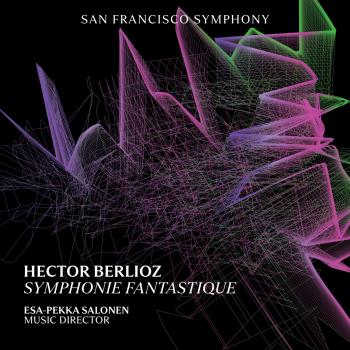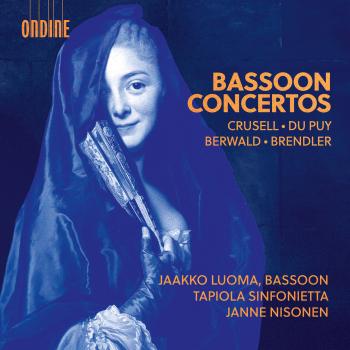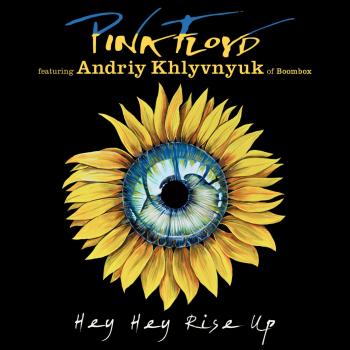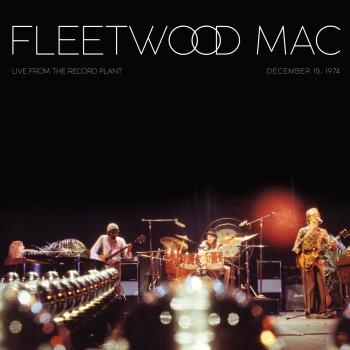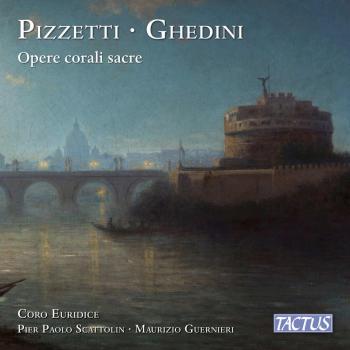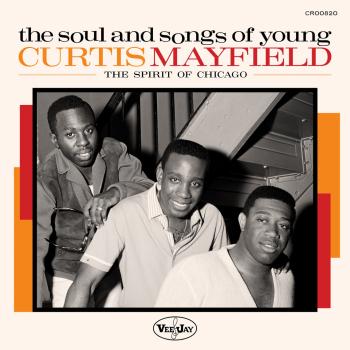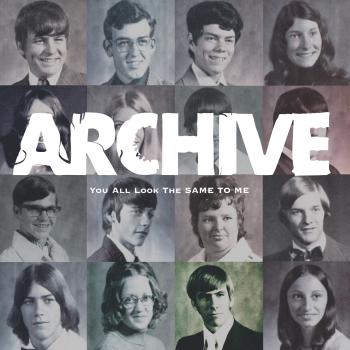
À Moune Lina Tur Bonet & Pierre Goy
Album info
Album-Release:
2022
HRA-Release:
05.08.2022
Label: Challenge Classics
Genre: Classical
Subgenre: Chamber Music
Artist: Lina Tur Bonet & Pierre Goy
Composer: Maurice Ravel (1875-1937)
Album including Album cover Booklet (PDF)
- Maurice Ravel (1875 - 1937): Berceuse sur le nom de Gabriel Fauré:
- 1 Ravel: Berceuse sur le nom de Gabriel Fauré 02:45
- Sonate pour violon et piano:
- 2 Ravel: Sonate pour violon et piano: I. Allegretto 07:57
- 3 Ravel: Sonate pour violon et piano: II. Blues. Moderato 05:40
- 4 Ravel: Sonate pour violon et piano: III. Perpetuum mobile. Allegro 03:58
- Tzigane, Rhapsodie de concert pour Violon et Piano Luthéal:
- 5 Ravel: Tzigane, Rhapsodie de concert pour Violon et Piano Luthéal 11:10
- Sonata en quatre parties pour violon et violoncelle:
- 6 Ravel: Sonata en quatre parties pour violon et violoncelle: I. Allegro 05:00
- 7 Ravel: Sonata en quatre parties pour violon et violoncelle: II. Très vif 03:24
- 8 Ravel: Sonata en quatre parties pour violon et violoncelle: III. Lent 05:32
- 9 Ravel: Sonata en quatre parties pour violon et violoncelle: IV. Vif, avec entrain 05:36
Info for À Moune
Hélène Jourdan Mourhange begegnete Ravel zum ersten Mal nach einem Konzert, in dem sie sein Trio aufführte. Sie war eine interessante, intelligente Frau, die sich in der Kunst und Kultur ihrer Zeit gut auskannte und eine begabte Geigerin war, die jedoch Jahre später wegen rheumatischer Arthritis aufhören musste zu spielen. Danach widmete sie sich der Musikwissenschaft, Rezensionen und anderen künstlerischen Aktivitäten. Nicht nur, dass sie wie ich Violine spielte, sie hatte auch die gleiche Krankheit, an der ich in meiner Jugend litt. Dadurch fühlte ich mich Ravel noch näher und verspürte den Wunsch, Hélène eine Hommage zu erweisen, indem ich alle Stücke aufnahm, die für sie und dank ihr geschrieben wurden.
Die enge Freundschaft zwischen den beiden hat das ganze Leben des Komponisten überdauert, und er hat sie oft um Rat gefragt, als er seine Werke für Violine komponierte. In ihrer unerschöpflichen Freundschaft nannte er sie liebevoll "Moune".
Gemeinsam mit Marechal brachte sie die Claude Debussy gewidmete Sonate für Violine und Cello" (1921) zur Uraufführung, eine der mutigsten Kompositionen Ravels. Er widmete ihr auch seine Violinsonate (1923-27), ein Werk, dem er viel Energie und Zeit widmete und in dem er versuchte, zwei Instrumente zu kombinieren, die er eigentlich für unvereinbar hielt. Der erste poetische Satz ist den ersten Sätzen des Duos und des Klaviertrios sehr ähnlich, aber der Rest scheint für ihn komplizierter gewesen zu sein und er brauchte Jahre, um ihn fertigzustellen. Schließlich schrieb er einen Blues als zweiten Satz und ein Perpetuum Mobile, das stark von der modernen Musik beeinflusst ist, die sie in ihren langen gemeinsamen Nächten in Paris zu hören pflegten. Außerdem komponierte er für Hélène die wunderbare "Berceuse sur le nome de Gabriel Fauré" (1922), in der er die Buchstaben des Namens seines Lehrers in Noten umwandelte, um die einfache und zauberhafte Melodie zu bilden, die sie noch spielen konnte. Obwohl Ravel Hélène bat, ihm die Violine und die 24 Paganini-Capriccios als Inspiration für die Komposition der Tzigane (1924) zu bringen, und sie ihm wieder half, war das Stück dieses Mal der ungarischen Geigerin gewidmet.
Er wollte ein virtuoses, von Paganini und Liszt inspiriertes Stück komponieren, und wahrscheinlich war Hélène aufgrund ihrer Krankheit nicht mehr in der Lage, aufzutreten. Er schuf drei Versionen der Tzigane, für die virtuose Violine in Begleitung des Klaviers, eine Orchesterversion und auch die einzigartigste, begleitet vom Luthéal, einem präparierten Klavier mit Cembaloregistern und zimbelartigem Klang, mit seinem wunderbaren zigeunerhaften und rhapsodischen Charakter. Diese Hommage kommt für mich in einem Moment, in dem jedes Werk, das ich aufführe, mit einer tiefen Studie über die Aufführung jener Zeit verbunden ist. Aus diesem Grund haben wir uns für eine Aufnahme mit Darmsaiten (wie damals), Bögen aus jener Zeit und einem historischen Klavier entschieden, sowie für die weniger bekannte Version der Tzigane mit dem Lutheal. Die Mischung von Darmsaiten zwischen Violine und Cello, sowie mit dem alten Klavier und dem Lutheal ist einzigartig und hilft, viele der Aspekte der Aufführung in vielen alten Aufnahmen zu verstehen.
Lina Tur Bonet, Violine
Marco Testori, Cello
Pierre Goy, Klavier
Lina Tur Bonet
Regarded as "one of the most exciting violinists of her generation", the versatile violinist Lina Tur Bonet has worked together with a large number of the most remarkable performers of either Baroque, Romantic or Contemporary music since her youth.
The convergence of the most significant musical influences that can be traced in her works, from the pioneers of the Historicist approach to Early Music, to the most eminent conductors and musicians of all repertoires, allows her acknowledgement as a depositary of the greatest European tradition in music.
Her uncommonly large repertoire covers up to 400 years of music, always using the proper instruments of every period.
She has a keen taste for chamber music, Johann Sebastian Bach, the repertoire written for unaccompanied violin, the conducting of chamber orchestras and the research on rethorical and symbolic aspects of music.
She is also deeply interested in embodying music into interdisciplinary projects, along with other forms of art expression.
Lina Tur Bonet has performed the complete cycle of Biber’s sixteen “Mystery Sonatas” in a single day, in Vienna. Her violin has been present in a hundred of Bach’s Cantatas and Passions. She has played Messiaen’s Quartet for the End of Times, Lutoslawsky and Morton Feldman at Fundación Tapies, Barcelona, has been concertmaster on Saint Mathew’s Passion at the Amsterdam Concertgebouw with Concerto Köln, and played as leader with multiple orchestras in Europe, being also soloist of concerts for violin and orchestra with works of Vivaldi, Bach, Mozart, Beethoven, Brahms, Ravel, Chausson, Mendelssohn or Piazzolla. She has recently premiered “Melancholia”, a piece for solo violin specifically composed for her by the composer José María Sánchez Verdú. She also played Bach´s complete works for solo violin at the Montreal Baroque Festival.
All this makes her stand as a reference in the classical music scene, having had her summoned for collaborations by some of the most prominent European ensembles in the world.
As a soloist, Ms Tur Bonet can stand a wide record of her appearances at so significant places and events as The Wigmore Hall in London, Styriarte Graz Festival, “Music Before 1800” Festival in New York City, San Diego Early Music Festival, Yale Instrument Collection, Brezice Festival in Slovenia, Herne Festival, Mainz Festival, Brunnenthal Festival Austria, at The Spanish National Auditorium in Madrid, The Residenzwoche Munich, ORF Vienna Radio Hall, Società Aquilana di concerti, Real Coliseo Carlos III in El Escorial, San Sebastián Festival, Granada Music and Dance Festival, London Lufthansa Festival, The Vilalbertrán Schubertiada, The Aranjuez Festival, Ekhof Festival Gotha, Fundación Juan March in Madrid, The Bilbao Musika-Música Festival, The Valencia “Palau de la Música”, and also around Europe as soloist with the European Union Baroque Orchestra at the most prominent Halls and Theaters.
Tur Bonet has been required as concertmaster with consortia like Il Complesso Barocco, Concerto Köln, Clemencic Consort, The Mannhein Chamber Orchestra, Orchestre d'Auvergne, Bach Consort Wien, The Hofkapelle Munich, Orquesta del Liceo, Orquesta Nacional de España or The Valencia Orchestra of Palau de les Arts, and most of the Spanish Baroque ensembles.
She has also played for some years in the first violins with such orchestras as Les Musiciens du Louvre, Les Arts Florissants, The Mahler Chamber Orchestra or the Orchestra Mozart of Claudio Abbado, having taken part in several recordings for Deutsche Grammophon, Naïve or Virgin Records under the lead of Daniel Harding, John Eliot Gardiner, Marc Minkowski, William Christie, Claudio Abbado, Fabio Biondi, Kent Nagano, Carmignola, Ottavio Dantone, Alan Curtis, Reinhardt Goebel, Richard Egarr, Theodor Currentzis or Tugan Sokhiev, with renditions at Lincoln Center New York, Berliner Philarmonie, Scala de Milan, Concertgebouw Amsterdam, Royal Albert Hall Proms, Festival de Aix-en-Provence, Barbican Centre, Theatre des Champs Elysèes, Théàtre Royal de la Monnaie, Bunkamura Hall or Sydney Opera House.
In the field of chamber music, she has performed with Mennahem Pressler, Christian Zacharias, Georg Faust, Patrick Demenga, Gordan Nicolich, John Holloway, Thomas Brandis, Christian Zacharias, José Miguel Moreno, Josep María Colom, Kenneth Weiss, Hiro Kurosaki, Dani Espasa, Matteo Messori, Edoardo Toerbianelli, Patxi Montero, Alexis Kossenko, Christoph Hammer, Axel Wolf, Rüdiger Lotter, Fahmi Alqhai, Marco Testori, Aurelia Visovan, or members of Cuarteto Casals. She has been lead violinist in chamber music ensembles in venues as The Vienna Musikverein, The Potsdamer Festival, Barocktage Melk, The Barcelona “Palau de la Música”, The Gent Festival van Vlaanderen, Konzerthaus Wien, Gustav Mahler Musikwochen Toblach, The Madrid Fundación Juan March Hall and Auditorio Nacional, or Saint Petersburg Philharmonic Hall. She has been often recorded by BBC in London, Spanish RTVE, Catalonian TV3, Slovenian, Croatian and Bulgarian National Television Channels, japanese NHK and The Austrian ORF.
She often conducts the Orquesta Vigo 430, la Orquesta de cámara de Menorca, la Orquesta "Ciutat d'Elx", la Cammerata, the Jerusalem Baroque Orchestra and the Camerata Villa Musica, Mainz.
Lina Tur Bonet has been appointed a representative of the Spanish policy for cultural promotion by AECID (Spanish Agency for International Cooperation and Development). In that role, she has toured several Latin American countries along 2016.
Ms Tur Bonet has played and recorded both works by the greatest authors, as well as previously unreleased compositions, like the complete Boccherini´s Op 34 Trios with "La Ritirata", or chamber music by Spanish composers like Joaquín García, Oliver and Astorga, and Plá, with “Estil Concertant”. She was concertmaster for the premiere of "Le Nozze de Iole ed Ercole" with The Hofkapelle, Munich for ORF label. She was also leader on Boxberg’s opera "Sardanapalus" with The United Continuo Ensemble and on the recording of some unknown chamber compositions from Mahler era for the Austrian Radio.
She played premieres in modern times of some of Gaetan Brunetti´s Trios, Quartets and Solo Sonatas, recording also his Sinfonia Concertante for Violin. Other recordings include premieres of Matteis’ pieces for solo violin and Violin Concerts and Sonatas by Antonio Vivaldi.
As conductor and violinist of her own ensemble, MUSIcha ALcheMIcha, she has released :
“Sonates pour le violon et base continue 1707”, by French composer Elisabeth Jacquet de la Guerre, with Kenneth Weiss and Patxi Montero for Verso label. Awarded “Melómano de Oro” (by Spanish Magazine “Melómano”), “R” (by Spanish “Ritmo Magazine”), and ranked “Five Diapasons” by the prestigious French magazine of the same name, and “Excepcional” (by Spanish magazine “Scherzo”).
“Vivaldi Premieres”, for PAN CLASSICS, a collection of concerti and sonatas by Antonio Vivaldi that introduced some formerly unknown pieces for violin, and meant a great step into the international recognition of her talents. Once more, the list of awards and acknowledgements is notorious, being ranked “Four Diapasons”, “Melómano de Oro” and “Excepcional”, again, and TIPP by German magazine “Toccata”.
“Mystery Sonatas”, a double CD compilation of the emblematic work by H.I.F. von Biber has been spectacularly greeted and praised by public and specialized media. It has been enthusiastically lauded by Gramophone Magazine, and appointed best release of the year by “El Cultural” of “El Mundo”. It has also got “Five Stars” by BBC Music Magazine, “Five Diapasons”, “Melómano de Oro” and “Excepcional”, a nomination for the International Classic Music Awards (ICMA) as 2015 best recording of Baroque Music. To be finally awarded the GEMA prize for 2015 best CD.
Her double CD "La Gioia" with the complete Sonatas op. V by Arcangelo Corelli was awarded with the "E" from Scherzo magazine, "Tipp" from the German Toccata magazine and the "R" from Ritmo magazine. Likewise, the “recommended top-version” has been chosen from among all the existing versions by BBC Radio 3 in its Record Review program - “Building a library”.
The CD "Il Grosso Mogul", recording again unreleased music by Vivaldi, received the "E" from Scherzo, "R" from Ritmo and Tipp from Toccata, being also a CD recommended by the radios in Berlin, Bavaria and the Southern Germany. GEMA Award for best recording of 2018. Three nominations for best CD for the German “Opus Klassik”.
A CD live recording occasionally in Germany in 2015 “Marais meets Corelli” was chosen Record of the Month for The Strad magazine, which has defined Lina as “fiery virtuous”.
Her CD in duet with the prestigious violinist Enrico Onofri with music by Bartok and Vivaldi received the 5 * DIAPASON and the 5 * of AMADEUS.
The Recording with Sonatas by Bach and Handel recorded with Dani Espasa for the Aparté label and considered "Magnifique" by Radio Classique France, has obtained the "E" by Scherzo and "CHOIX" in the French Classique HD magazine, as well as "Tipp" from the German magazine Toccata, and the 5 * DIAPASON.
Her CD "La Bellezza" with violin music from the s. XVII, recorded with his ensemble MUSIca ALcheMIca, received the recommendation of the radios of Berlin and the Bayerische Rundfunk, as well as the "Excepcional" by the Scherzo Magazine, the Melómano de Oro, “Joker Absolu” of Crescendo, and the prestigious Diapason d'OR.
Her latest album is called "Sonata Lunatica”, recording in Austria the “Kreutzer Sonata" and the last Sonata for violin by Beethoven, together with Aurelia Visovan for the Passacaille Label, after an intense investigation into the interpretation of the guided period, among others, by Clive Brown.
Lina’s first approach to music was guided by her father, Antonio Tur, at the age of three. Later on, she completed her studies on violin at Freiburg and Vienna Universities, where she got the highest qualifications with Professors such as Chumachenco, Pichler and Kurosaki, as well as guidance from Tibor Varga, Franco Gulli, Shmuel Askenasi, Augustin Dumay, Joseph Silverstein, Maria Joao Pires, Erich Höbarth and Rainer Kussmaul.
While a student, she was granted several scholarships from a number of institutions from different countries, like the German “Alexander von Humboldt-Stiftung Foundation”, “Villa Musica Mainz”, “Austrian ÖAD” or “Seneca Foundation”. She was awarded prizes like “Premio Bonporti” and “Premio Juventudes Musicales de España” (twice), or “Promúsica Murcia” in 2010, among many others.
Lina Tur was honoured MAGISTRA ARTIS by the Musikhochschule Wien for her thesis on “Rhetoric, Symbology and Johann Sebastian’s Bach Ciaccona”. Her research on rethorical and symbolic aspects of music is a constant concern in her professional career.
Besides performing and researching, Tur Bonet develops a teaching assignment in music in Spain, where she held the Chair of Violin at the Conservatorio Superior de Zaragoza (2005 – 2016). She is currently Chair Professor at Conservatorio Superior “Katarina Gurska” in Madrid. She often works as guest teacher in universities from other countries, like Mainz University in Germany.
Her enthusiastic curiosity and constant investigation about different forms of art expression, led Lina Tur to the foundation of MUSIca ALcheMIca, a flexible ensemble that not only allows her to work together with other great musicians in a wide range of styles, but also to meld music with a variety of other multidisciplinary artistic and educational projects.
Different lineups of MUSIca ALcheMIca have performed live concerts in festivals and events in places like Brecize Festival, Potsdamer Festspiele, Zaragoza Early Music Festival, Madrid Sacred Music Festival, Valladolid Auditorium, Brunnenthal Festival, Vienna ORF Hall, Carlos III Theatre at El Escorial, FeMAP, Kartause Mauerbach, Festival del Pórtico de Zamora, Mahón Festival, Perú, Bolivia and Chile. They have also made recordings of music by Legrenzi, Biber, Bach and Haendel for the Austrian Radio ORF.
About this multidisciplinary dimension, some remarkable collaborations with marionettes are to be pointed out, specially with Vienna Kabinetttheater and in puppet shows with Francisco García del Águila. These shows have allowed Ms Tur Bonet to take music out of its ordinary context, to integrate a new experience where it is related with marionettes, a theatrical environment and fabulation.
Some other forays into the fields of artistic performance and video release should be mentioned. As well as mixed up poetry and music performances with Spanish poet Antonio Colinas, being the most remarkable one “La Tumba Negra”, a lecture of a long poem by Colinas, which is dedicated to Johann Sebastian Bach, where she plays his d-minor solo Partita. Her desire to find new space for music and the afore mentioned concern for interaction with other disciplines, has taken her to play in museums and other cultural premises, such as MuVIM (Valencia Museum of the Enlightment and Modernity), Sala Matadero in Madrid or MACE. The videos by MUSIca ALcheMIca are becoming very popular for their creative and artistical standing.
Booklet for À Moune


